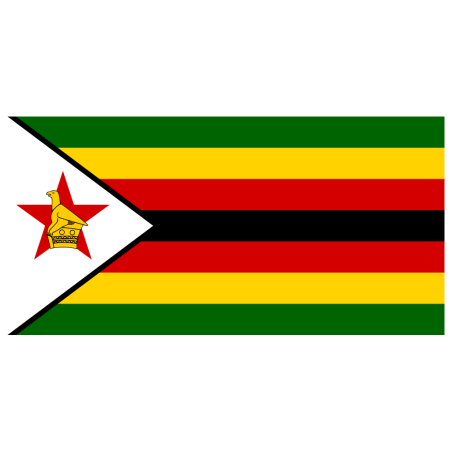Zimbabwe: Depositors Flee From Banks

Depositors are moving from banks to informal savings groups, known in Shona as mukando, due to an erosion of confidence in the banking sector, the Financial Gazette can report.
This emerged during the launch of a national financial inclusion strategy (NFIS) report by government.
Mukando is a practice whereby groups of people pool finances and take turns to share the sum by rotating it every month, week or per day.
Other versions of the scheme involve members contributing funds from which members then borrow at lower interest rates than those obtaining in banks.
They share interest of between US$5 000 and US$50 000 per month, according to data from Finance Minister Patrick Chinamasa and the Ministry of Small and Medium Enterprises and Cooperative Development (SMECD).
There are hundreds such savings groups in Zimbabwe, which could be taking millions of dollars in potential bank deposits per annum, and undermining retail banking.
However, they do not lend to productive sectors.
Authorities said Mukando members intimated that "the safest place to keep money is in the trunk, under the pillow and under the mattresses".
Permanent secretary in the SMECD, Evelyn Ndlovu, said bankers must devise "strategies so that when we put our money in the bank it is not swallowed".
Mukando could be the latest of challenges facing banks, whose combined deposits reached US$5,6 billion last year, from US$5 billion in 2014, but far below the levels sufficient to support the resuscitation of the country's collapsing industries.
The banking sector has also faced significant threat from mobile money transfer services run by mobile telecommunications companies.
An aggressive mobile money transfer sector courted the ire of banks at inception in 2009.
Banks have raced to recapture this market with mixed results as non-banking mobile money platforms mobilised US$54 million deposits in the third quarter of last year, reflecting growth.
A further 153 000 people signed up to 72 savings and credit cooperative societies (SACCOs) in 2013; through these societies, they saved US$4,25 million and accessed US$1,2 million in low interest loans, according to a 2013 World Bank report on SACCOs.
The World Bank report said SACCOs had "great potential to mobilise lower denominated deposits that are ordinarily not accepted by formal banking institutions".
"In my constituency, women have organised themselves into Mukandos," Chinamasa told bank chief executive officers (CEOs) at the launch of the NFIS last week.
"One woman said we don't need the banks, we have mukandos. These women are sharing US$5 000 per month," Chinamasa indicated before Ndlovu revealed that the figure was US$50 000 per month in Harare, where informal savings clubs are called "table banks".
"Banks cannot afford to (ignore) the informal sector. Doing so will be like burying yourselves in the sand," said Chinamasa.
He spoke as the cash crisis hit the financial sector three weeks ago, with several banks limiting withdrawals to as low as US$200.
The central bank blamed banks for underestimating demand which resulted in the cash shortages, which have since subsided.
Apparently, at the core of troubles roiling banks are high interest rates, which can be as high as 46 percent, way above a 12,5 percent rate cap agreed on three years ago.
Failure to adapt to dynamics where 5,7 million of the country's businesses are small to medium scale enterprises (SMEs) has been blamed for the stunted growth.
In addition, an informal sector controlling 50 percent of the country's gross domestic product has flourished, and 43 percent of their funds are kept outside banks.
Warning the CEOs against high interest rates, Chinamasa said a depositor had approached his office recently after a bank slapped him with a 46 percent interest on a non performing loan.
"This is something that should shame the banks. If this chap is a bad debtor, the highest he could have been charged was 18 percent, which was the initial arrangement," the minister said.
Banks lost about US$70 million in potential revenue within nine months of the interest rate cap. Now, continued reports of instability highlighted by the cash crunch could aggravate depositor fatigue.
Government says seven percent of respondents to a recent banking survey indicated that they could not bank their funds due to low interest rates on deposits.
In a presentation at the launch of the NFIS Indigenisation Minister, Patrick Zhuwao, said these funds could not support the formal system until banks reviewed rates, dealt with their "dinosaur culture" and "recognise that there is a significant shift (where) they have been replaced by the mobile phone".
Already, 3,2 million of the 5,7 million SMEs have been avoiding banks, according Ndlovu.
And 30 percent of Zimbabwe's adult population was unbanked last year, while 74 percent of SMEs who responded to the survey said they did not need banks.
Seven percent said bank charges were too high. Last week, banks said they had taken steps to drive the numbers up again.
"The reforms to deepen financial inclusion are welcome and the banking sector has already embraced the majority of the changes," said Bankers Association of Zimbabwe president, Sam Malaba.
"It is pertinent to point out that banking infrastructure is not readily accessible in many rural parts of Zimbabwe. Further, fairly limited employment opportunities aggravate financial exclusion conditions in rural areas, in addition to limited access to formal banking infrastructure," Malaba said.
The NFIS is expected to improve the number of people accessing banking services to 90 percent by 2020, from 69 percent last year.
SOURCE:FINANCIAL GAZETTE
 Africas leading resource for digital financial services
Africas leading resource for digital financial services


comments